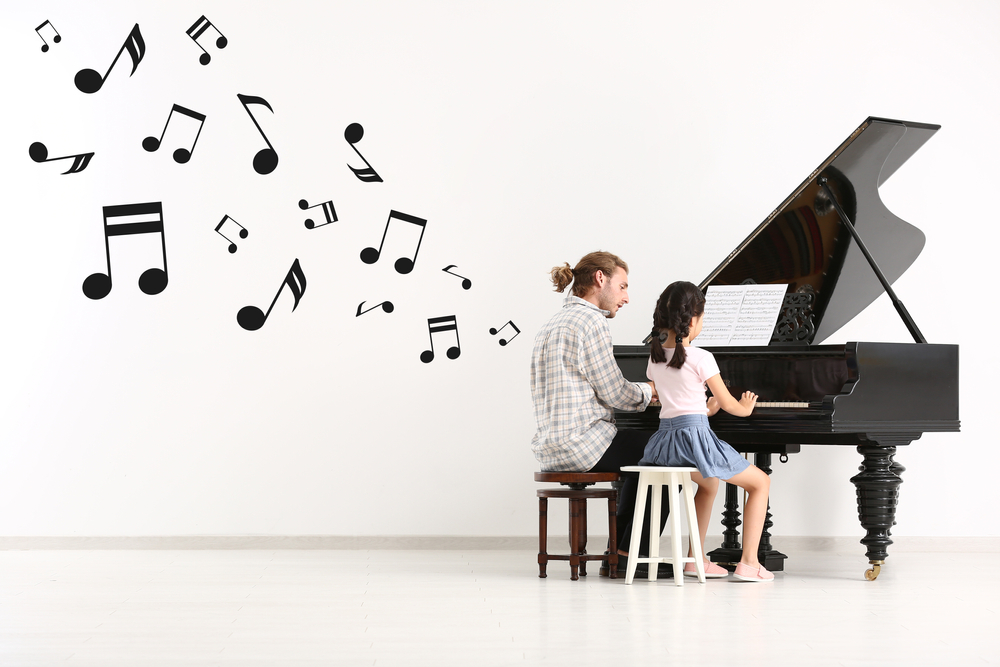
In Gwinnett and throughout Georgia, school is now well back into session, and many of our children are looking for ways to express their creativity outside of the classroom.
One of the most interesting, fun and challenging extracurricular activities since the dawn of time is taking music lessons. No matter what instrument your child gravitates toward, and regardless of how far they want to go with it, even a semester of music lessons can help your young student better understand and relate to almost any of the other classic subjects taught in today’s classroom.
One of the most intriguing reasons for this is that music IS these subjects!
Music lessons ARE math lessons.
Every aspect of music; rhythm, melody, harmony, etc., is truly all numbers and how they relate to each other. Rhythmically, the number of notes that happen between beats is learned exactly the same as reading a tape measure, and is literally basic division.
Whole notes, 1/2 notes, 1/4 notes, 1/8 notes and onward. Melodically, the common eight-tone scale, increases in whole and half step increments and are numbered in relationship to the “root note,” which is labeled “1.” As in mathematics, the deeper you dig into music lessons, the more fascinating it can become.
Music lessons ARE science lessons.
The sound of a guitar or violin string, the singing voice or even a drum being hit makes is a literal example of physics in action.
To study the vibrational properties and resonance of different sounds and how they work together to create harmony or dissonance, is to study the physical laws of the universe. There have been many parallels made of music theory to that of astronomy, chemistry and even biology and again, the more you learn, the more similarities you discover.
Music lessons ARE language lessons.
One of the most important parts of learning any new language is ear training. You must become accustomed to new sounds and how they interact with each other in order to speak and understand any new language, including that of music. Similarly, learning to read a new language, such as Mandarin, Icelandic -- or the language of music -- involves learning to identify and sound out the symbols associated with their sounds and how they work with each other to convey ideas.
Many times, when a gifted music student tends to struggle with any of the basic scholastic subjects, making the connection between their similarities and properties can help bring a better understanding of the subject they’re struggling with. It, of course, works the same vice-versa!
At Gwinnett Music, we know that learning a musical instrument is fun and taking music lessons can open the centers in the brain where there might have been areas that were tough to crack, further sharpening the skills they are learning in school.